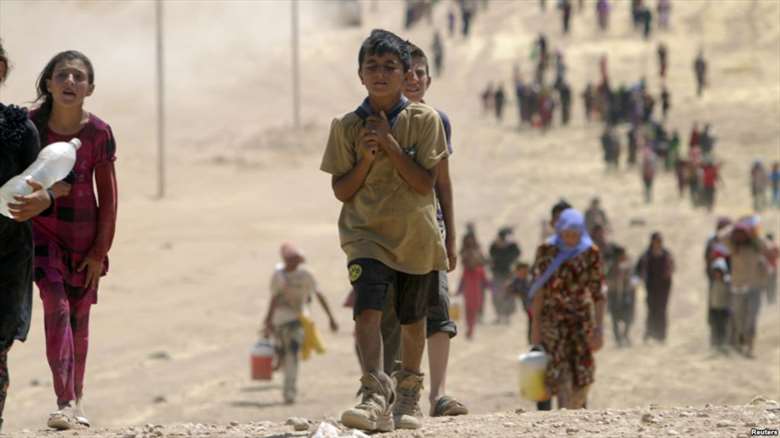Turkish offensive is a second hit to Ezidis and minorities living in northern Syria

ERBIL (Kurdistan 24) – Hundreds of Yezidi (Ezidi) families who escaped the brutality of the Islamic State in Syria are once again forced into displacement and religious prosecuted following the Turkish offensive in northeastern Syria.
Since the beginning of Ankara’s military offensive supported by Syrian Islamist groups on Oct. 9, hundreds of Ezidi families, from the area or having fled there from Iraq to start a new life in northeastern Syria, have been displaced. Many have since been forced to take refuge in the Kurdistan Region, other areas in Syria, and some are hoping to get into Europe.
Orivan Abdo, a Ezidi journalist who is following the case of the Ezidis living in Gera-Spi and Serekaniye which are now under the control of the Turkish-backed militias and Turkish forces, reported that “in Gera-Spi alone, the first territory the Turkish assault targeted, out of 50 Ezidi families, more than 30 were displaced.”
“In the villages and surrounding territories on the Turkish-Syrian border, 200 Ezidi families have either been displaced or migrated to Europe,” he explained, adding that Christian and Muslim families are also being displaced.
The emergence of the Islamic State and its violent assault on Iraq’s Ezidi-majority city of Shingal in August 2014 led to the displacement of hundreds of thousands of members of the Ezidi community and the killing of scores more, now recognized by the United Nations as an act of genocide.
Most of them fled to the Kurdistan Region while others resettled in neighboring countries or Western states.
Some of the Ezidi families who have been liberated from the Islamic State’s rule in Syria by the Kurdish forces settled in northeastern Syria, choosing not to return to Iraq in fear of their security and social rejection.
Read More: Fear, disowning of children among reasons Yezidi women cannot leave Syria camp: advisor
Mustafa Nabo, the Ezidi representative in the de-facto autonomous administration in northeastern Syria, told local media that “the Ezidis living in Afrin and its surrounding villages, which are under the control of Turkish-backed militias, are facing the same treatment as they received under ISIS-rule, where the girls are forced to wear scarves (Hijab) and black clothing, and Mosques are being built in Ezidi-populated areas.”
Turkey and Turkish-backed armed groups captured the region of Afrin on March 18, 2018, in a campaign that lasted over two months. “Following the seizure in 2018 and the recent Turkish assault, only 15,000 of a total of 50,000 Ezidis in northeastern Syria now remain,” according to the Kurdish administration in Syria.
Editing by Nadia Riva
